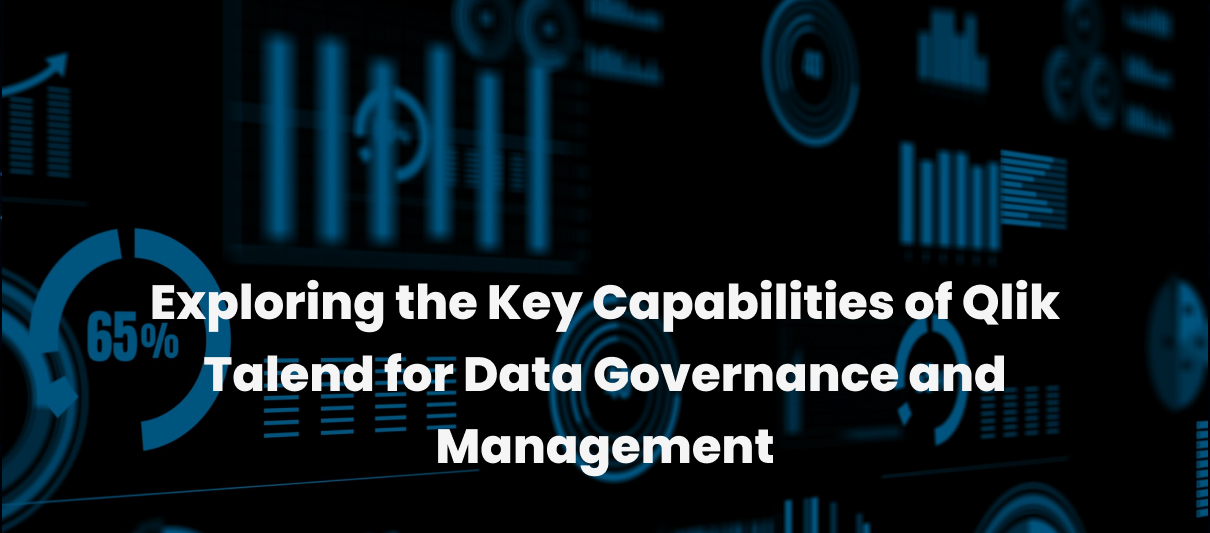What is Data as a Service (DaaS)? A detailed guide
Your data used to be a goldmine of insights, driving business growth and making smart decisions. Now, it’s just a jumble of outdated reports for your business. This outcome drives you or your enterprise to think, What have we missed out on?
Your team might not be aware of how to use the data or miss important information, or be moving on. These types of situations make your enterprise rely on gut feelings instead of the powerhouse of data you have. Before you give up, remember it’s not too late to break the stigma.
Data as a Service (DAAS) is the golden ticket to data clarity, transforming chaos into actionable insights. It transforms the way businesses access and utilise data, empowering them to make informed decisions, respond swiftly to market changes, and ultimately drive innovation and growth.
But don’t rush in blindly—success lies in strategy, not just enthusiasm. Let’s explore the blog to learn more about DAAS in detail.
What is Data as a Service (DaaS)?
Data as a Service is a model that allows users to access, manage, and store data in the cloud through the Internet. Without the help of additional on-premise architectures, users can use this service to provide “on-demand” data from various sources.
The DaaS cloud model enables businesses, individuals, researchers, government agencies, non-profit organisations, and educational institutions. This cloud-based data service provides tailored insights for businesses to make effective data-driven decisions.
Key Components of Data as a Service
- Data Collection: Collects data from different sources to create a complete set of information in one unified place.
- Data Analytics: To find important patterns and trends in the data that help make better decisions.
- Data Visualization: Turns data into easy-to-read graphs and charts to make the information clearer and easier to understand.
- Data Segmentation: Breaks the data into smaller groups to analyse specific parts to improve marketing and operations
- Correlation: Finds links between different pieces of data to help understand how information is connected.
Understanding DaaS for Businesses
Access to accurate and timely data is crucial for business success. DaaS makes this possible for organisations by interacting with data by providing flexible, cloud-based access to vital information.
- No Ready-Made Applications: DaaS doesn’t provide complete software applications that you can use right away, like Software as a Service (SaaS). Instead, it offers you raw data from various sources that you can analyse and integrate.
- No App-Building tools: Unlike PaaS (Platform as a Service), which offers developers the ability to build and manage applications whereas, DaaS never provides an app-building feature other than accessing data.
- Access without Limit: The main advantage of DaaS is that it frees data from being stuck in one physical location, like a data center. It helps users to access, manage, and store data in one central location (cloud) without any restriction.
Why is Data as a Service important?
If you’re looking to unlock data from increasingly vast sources and efficiently access large amounts of complex data, DaaS is the go-to tool, especially for businesses. Besides, organisations are facing difficulty in obtaining actionable and processing such data due to a lack of knowledge, value, and budget allocated. Let’s explore the importance of DaaS.
- Helps businesses store data in the cloud with Daas to meet their growing needs without scalable issues or limitations imposed by physical data centers.
- Eliminates the need for additional resources and investment to access and store data from other sources.
- Allows users and businesses to manage data in the cloud from anywhere and anytime, authorising access to real-time data insights.
- Reduces the complexities and streamlines the process of storing, accessing, and controlling data from diverse sources
- Keeps the information consistent and up to date by centralising the data by minimising the chance of errors
What are the Benefits Of Data as A Service?
According to statistics, the data as a service market size is expected to reach USD 51.60 billion by 2029. This means that DaaS is rapidly growing in importance and adoption across industries, reflecting strong demand for flexible, scalable, and cost-effective data solutions.
Let’s break down the benefits of data as a service for businesses.
1. Business Agility
DaaS helps businesses stay agile by providing access to data quickly and efficiently. It facilitates enterprises by reflecting on the market changes, customer demands, and business requirements with an advanced data storage capability, allowing them to stay competitive.
2. Cost-Effectiveness
DaaS allows businesses to save on expenses by only paying for data usability, reducing unnecessary costs on physical infrastructure. Maintenance and upgrades are included, making it a budget-friendly solution that scales with their needs.
3. Data Quality & Accuracy
Every enterprise aims for high-quality data, and DaaS makes achieving this easier. Quality and maintenance are critical but often time-consuming and resource-intensive. With DaaS, maintaining data quality becomes simpler and more efficient, making your data truly valuable.
4. Faster/Easy Access
Accessibility is the core of effective data management. Companies were accessing data from siloed systems and different locations, which was time-consuming. With the help of DaaS, businesses can access data instantly from anywhere and at any time, promoting swift decision-making and seamless collaboration.
5. Supports Multiple Users
DaaS supports data access across teams, departments, or even external partners. This setup improves collaboration by allowing everyone in the organisation to work with the same data without disruptions or delays.
6. Reduce Risk
DaaS ensures your data is always accessible with minimal downtime, even during technical disruptions. This level of reliability is crucial for maintaining smooth operations and supporting critical decision-making processes. With DaaS, your team can confidently rely on consistent access to accurate data, helping to drive productivity and business continuity.
7. Automated Data Governance
With the help of a DaaS provider, the requirement to safeguard the integrity of data of both businesses and customers is handled effectively. This avoids the need for manual intervention and cuts resources to manage and troubleshoot data.
Key Takeaway:
DaaS enables organisations to streamline data management, ensuring faster, more accurate insights. By freeing businesses from the complexities of traditional data storage, DaaS enhances agility, supports informed decision-making, and drives long-term growth.
What are the Major Challenges of Data as a Service?
1. Lack of Cloud Support
Not all DaaS providers are fully compatible with cloud infrastructures, which can limit scalability and flexibility for businesses already leveraging cloud platforms. Organisations may need help with data integration or experience inefficiencies when migrating between on-premise systems and the cloud.
DaaS platform need to ensure seamless cloud compatibility to enable smooth integration and support scalability. It should prioritise offering cloud-native solutions, ensuring businesses can migrate and manage data without disruptions.
2. Data Security and Privacy
When using third-party DaaS providers, sensitive data may be stored outside the organization’s secure environment. This raises concerns around data protection, compliance with regulations, and ensuring the security of sensitive information.
Businesses using any DaaS platform need to ensure that their data services follow privacy laws and regulations and that data is managed properly to avoid any legal issues or risks.
3. Limitations of DaaS tools
Some DaaS platforms provide a limited set of tools and data integration support for the enterprise. Some providers restrict your organisation to using only the tools they host, which might not meet business requirements.
To avoid these complications, it’s important to choose a DaaS provider that offers greater flexibility and a wider range of tools to ensure smooth data management.
Key Takeaway:
DaaS facilitates enterprises’ access to and management of data effortlessly by providing real-time updates, ensuring data consistency, improving decision-making, and reducing the complexity of data integration across platforms.
Future-Proof Your Enterprise with SquareOne’s Data Management Services
Effective data management is a cornerstone for organisations seeking to optimise their workflows, boost data-driven decisions, and enhance operational performance. SquareOne is one of the leading data management solution providers in the Middle East and understands the limitations of outdated data management systems and the complexities of handling large volumes of data.
SquareOne’s approach towards offering data as a service for achieving effective data enrichment for organisations through our expertise in
- Qlik for effective data integration, data quality, and analytics solutions
- Microsoft Power BI is for powerful, interactive data visualisation, gathering data from various sources and allocating it to visually interactive insights.
SquareOne provides a tailored approach that ensures that your data management evolves with your business needs, empowering you to unlock actionable insights and drive sustainable growth.
Final Note
Adopting a robust DaaS solution simplifies data access, enhances decision-making, and drives efficiency. Leveraging cloud scalability and advanced analytics, it empowers businesses to unlock valuable insights.
At Square One, the team of specialists delivers seamless data management support tailored to your business needs, helping you stay competitive and make data-driven decisions easily.
Need help with data management? Let the expert team at SquareOne help you grasp the power of DaaS.














